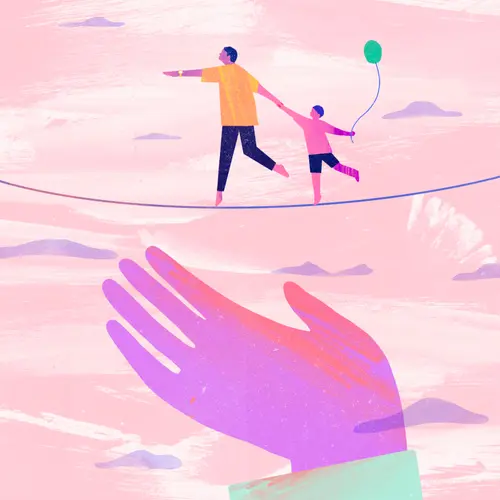Attention deficit hyperactivity disorder (ADHD) and autism can look a lot like each other. Children with either condition can have problems focusing. They can be impulsive or have a hard time communicating. They may have trouble with schoolwork and with relationships.
Although they share many of the same symptoms, the two are distinct conditions.
Autism spectrum disorders are a series of related developmental disorders that can affect language skills, behavior, socializing, and the ability to learn. ADHD is a common condition that can impact how well you concentrate, stay still, or think before you act.
The correct diagnosis early on helps children get the right treatment so they don't miss out on important development and learning. People with these conditions can have successful, happy lives.
How Are They Different?
Keep an eye on how your child pays attention. Children with autism struggle to focus on things that they don't like, such as reading a book or doing a puzzle. And they may fixate on things that they do like, such as playing with a particular toy.
Kids with ADHD often dislike and avoid things they'll have to concentrate on.
You should also study how your child is learning to communicate. Although kids with either condition may struggle to interact with other people, those with autism can have less social awareness of others around them. They often have a hard time putting words to their thoughts and feelings. And they may not be able to point to an object to give meaning to their speech. They find it hard to make eye contact.
A child with ADHD, on the other hand, may talk nonstop. They're more likely to interrupt when someone else is speaking or butt in and try to monopolize a conversation. Also, consider the subject. Some kids with autism can talk for hours about a topic that they're interested in.
A child with autism usually loves order and repetition. But a kid with ADHD might not, even if it helps them.
A child with autism might want the same type of food at a favorite restaurant, for instance, or become overly attached to one toy or shirt. They can become upset when routines change.
A child with ADHD doesn't like doing the same thing again or for long times.
How Are They Diagnosed?
If you think your child has either ADHD or autism, talk to your doctor about what testing they will need. There's no one thing that can say whether a child has either condition, or both. You can start with your pediatrician, who may refer you to a specialist.
To diagnose ADHD, doctors look for a pattern of behaviors over time, like:
- Being distracted or forgetful
- Not following through
- Having trouble waiting for a turn
- Fidgeting or squirming
They'll ask for feedback from parents, teachers, and other adults that care for the child. A doctor will also try to rule out other possible causes for the symptoms.
An autism diagnosis starts with a parent answering a questionnaire about the child, often about behaviors that started when they were very young. Further tests and tools may include more questionnaires, surveys, and checklists, as well as interviews and observed activities.
[Self-Test] Spotting the Signs of Autism Spectrum Disorder
What Are the Treatments?
It can be hard for doctors to tell the conditions apart, but it's important so your child gets the right treatment.
There's no one-size-fits-all way to deal with ADHD. Younger kids start with behavior therapy, and the doctor may prescribe medication if symptoms don't improve enough. Older kids will usually get both. ADHD symptoms, and their treatment, may change over time.
Different kinds of therapy -- behavior, speech, sensory integration, and occupational, for example -- can help kids with autism communicate and get along better. Medicine can't cure autism, but it may make related symptoms like trouble focusing or high energy easier to manage.
Can You Have ADHD and Autism?
Yes, it’s possible to have both conditions.
It’s common for children with an autism spectrum disorder to also have signs of ADHD. Also, some kids who’ve been diagnosed with ADHD may also have a history of autism, with symptoms like trouble with social skills or being extra sensitive to textures of clothes.
One study found that children diagnosed with both conditions were more likely to have a combined type of ADHD, which includes hyperactive and impulsive symptoms plus trouble paying attention.
Some doctors have experience treating both conditions. If you can’t find one who does, you may need to meet with more than one professional, like:
- Your child’s pediatrician
- A mental health specialist who treats ADHD and autism (like a child psychiatrist)
Work with your child’s care team to find a treatment plan that’s right for your little one. It might include both behavior therapy for autism and medication for ADHD.
Some doctors say that ADHD medication is important for children who have both conditions. ADHD drugs may help for certain autism symptoms that sometimes overlap with ADHD, like being hyper, impulsive, or inattentive. Stimulant ADHD medications may cause more side effects and might not work as well as they would for a child who has ADHD alone, though.

